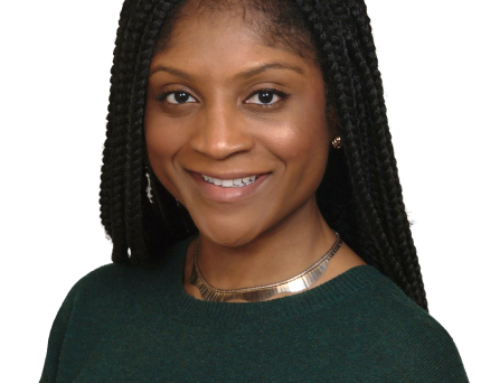Bad things happen to patients undergoing routine surgeries, and sadly, many of these outcomes are completely preventable if you know what key questions to be asking in advance. Anesthesiologists, Dr. Maleeha Mohiuddin and Dr. Dionne Ibekie, will explain that not all medical facilities and personnel have the same safety standards and may not be the right fit for YOU. Don’t make any assumptions, learn what to look for and what questions to ask!
Beat Provided By https://freebeats.io
Produced By White Hot
Dionne: These are just a few news headlines from earlier this year. Tragically, there are a lot more. We believe they were all preventable.
Maleeha: This is the IV drip. I’m Dr. Maleeha Mohiuddin and I’m joined by my co host, Dr. Dionne Ibekie. We are Harvard trained anesthesiologists. On today’s episode, we’re going to tell you the most important questions you should be asking before you go under anesthesia. And I’m telling you, it’s critical to know who is taking care of you. Right Dionne?
Dionne: Yes. Girl critical as in life or death, particularly in certain situations. And we’re going to share with you the questions you need to be asking but haven’t been told to ask because these headlines are out of control. They’re crazy. Honestly.
Maleeha: Yeah. They were so upsetting to hear, even when I was doing the research for them, it was hard for me to listen to these headlines.
Dionne: Yes, they are.
Maleeha: Yeah. And that’s what we’re going to talk about. But it’s really important, right, that these questions you should be asking that hopefully can prevent a terrible tragedy from happening again.
Dionne: That’s right. And these terrible tragedies might not be as extreme as death, but it can still be a bad outcome.
Maleeha: Yeah, absolutely. Okay, before we dive into these headlines, I think it’s actually helpful if we back up and explain what we do, you and I, what we do as anesthesiologist, because it will help folks understand why we believe these questions are so critical.
Dionne: I’m honestly surprised by how little people know about what we do, Maleeha. Then again, it’s not like our names are plastered on buildings or on doors and we’re largely unseen. We meet our patients just, like, five minutes before the case starts. So I get it, I guess.
Maleeha: That’s so true. It’s really true. And we are pretty invisible to most people, so it’s completely understandable that it’s a hard profession to understand and we don’t get that same visibility. So let’s go ahead and dive in and start talking about what we do.
Dionne: Yeah. Thank you.
Maleeha: First, let me get this out of the way. Anesthesiologists are doctors. We go to medical schools and complete residency training and sometimes fellowship. Our main priority is to ensure the safety of our patients under normal surgery. Like you mentioned, Dionne, you usually meet us right before your procedure. Okay. And we’ll talk to you and the surgeon and come up with the best plan specifically for your needs. I often use this analogy with my patients. I call the pilot analogy to explain what we do. Pilots make sure the plane they’re about to fly has passed all the necessary tasks before takeoff. They have a checklist that they run through, and if the plane doesn’t pass inspection, the flight will be delayed or canceled. Similarly, I will make sure you are as ready as you can be before proceeding with the surgery. This is often why we send you to the primary care doctor before a procedure where you get a check up, the labs are drawn, and EKG is performed. Sometimes that’s all part of our checklist.
Dionne: See, guys? There’s a reason why we take you to primary care doctor. And your cardiologist, Maleeha, I really love that pile of analogy. I just have to tell you that I’m so glad you just used it.
Maleeha: Thank you.
Dionne: I know you can’t, but I’m so glad you used it because it fits our specialty to the T. It really does.
Maleeha: It does. So, just like the pilot who has to fly the plane and land safely, the goal isn’t just take off. It’s having a safe flight and getting to the destination safely. Our job is to keep you alive while the surgeon works on fixing whatever it is that needs fixing and also to make sure you do well after the procedure.
Dionne:Exactly. It’s not just getting through the surgery. It’s also the recovery phase that we manage. And we also decide where you end up, whether it’s the ICU or going home.
Maleeha: Yes. And this can be really challenging. In fact, you were just on call. What was the case you were telling me about?
Dionne: Oh, my gosh. Yes. Midnight ruptured. AAA. That’s a ruptured aorta, which is the largest artery in your body. Yeah. Bleeding.
Maleeha: Rough call for you.
Dionne: Very. Yeah.
Maleeha: But hopefully you guys get the idea. We have to know how to put someone to sleep and keep them alive while the surgeon tries their best to fix the problem. And it can be highly stressful, but it’s really rewarding, as well.
Dionne: And we want to point out it’s not just trauma that we deal with. We actually mostly do a lot of routine surgeries. But depending on how complex the case is or how sick the patient is, that can also be a challenge. And we care for patients at all phases of life, from newborn and preemies to the elderly. And we place epidurals and spinals and obstetrics. Yes. And we’re there for critically ill patients in the ICUs.
Maleeha: We even cover pain clinics and the hospice and even palliative care. So we really have the privilege to care for all phases of life, like you said. And I love that about our job. Going back to the main point, why is knowing what we do critical to people’s safety?
Dionne: Well, let’s build back the card memory feels some truth.
Dionne: Oh, I like that. I don’t think most patients are aware that they’re having procedures without a qualified anesthesiologist or nurse anesthetist team on site. This is particularly true at what we call freestanding facilities pediatric dental offices, ambulatory surgery centers, particularly cosmetic endoscopy suites, Joan Rivers, cath labs where they are doing more complex procedures with sicker patients than they’re equipped to handle. The worst part is that you have no clue that these places often don’t have the personnel or the medical supplies that they need to deal with unexpected emergencies.
Maleeha: Yes. Drop that knowledge. That was a major pearl. Major pearl. Let me take it back to my pilot analogy, though. Most of the time you board a flight, you have no idea who the pilot is. You just assume they have passed whatever certification necessary and they are well rested and everything will be okay. I mean, I’m even guilty of that. I don’t know the pilot when I get off the flight. Absolutely. I just make that assumption. Now, would you board a flight, even a short one, if there wasn’t a licensed pilot flying?
Dionne: No.
Maleeha: Would you board the flight if the plane didn’t have emergency equipment on board? No. Yeah, I think most reasonable people would say, Heck, heck no.
Dionne: Hecky, no. Not happening.
Maleeha: It’s very important, then, that you ask these questions, because having anesthesiologist isn’t guaranteed depending on where you are. Please don’t make that assumption. And then find out the painful way, like those headlines, that there wasn’t an anesthesiologist in the room or that the ambulatory center isn’t equipped to quickly respond to a medical emergency. You have to understand that a lot of these facilities don’t always have a larger hospital nearby.
Dionne: Right
Maleeha: So when they have an emergency, they’re calling 911. And by the time the paramedics get there, too much time has passed, and that often results in irreversible brain damage.
Dionne: The truth is, there is no patient safety standardization across all the different types of facilities, and there’s also no standardized requirement about who should be administering anesthesia and what kind of emergency equipment to have on site. So this just kind of just seems irresponsible. And you might be wondering, how is this even possible?
Maleeha: Yeah, I mean, that’s a great question. It sounds so alarming, even to me. And we see it. It crazy. It does. I do want to say this and be very clear outpatient or ambulatory surgical centers aren’t bad. They’re actually incredibly convenient. And the vast majority of times, people are having procedures done safely. Okay.
Dionne: very true.
Maleeha: Yeah. But they’re sending patients home on the same day, and they’re pretty low risk, but they are convenient and also very lucrative. They have exploded in popularity over the last couple of decades, and there has been a trend to do increasingly risky cases, like complex multilevel spine surgeries, which should really be done in a hospital setting.
Dionne: Please have that done in a hospital. Please.
Maleeha: Yes, absolutely.
Dionne: Girl, it must be so lucrative, because I see these things popping up all over town. These free standing facilities aren’t hospitals. And while they’re convenient, they do not have the same resources. They just don’t.
Maleeha: They don’t. And I’m here in Arizona, and it is like the wild, wild west out here. I see these everywhere, like in strip malls.
Dionne: Oh, my God. Yeah. I don’t know which ones are accredited and which ones aren’t.
Maleeha: You don’t.
Dionne: And that’s the status.
Maleeha: Money talks. It’s expensive. It’s expensive for these centers to have qualified doctors, nurses, and all that emergency equipment. These are businesses, guys. These ambulatory surgical centers. There are these freestanding facilities. I mean, even hospitals, to some extent, they’re all businesses. And some of these facilities, they’re just not as regulated as you might think. They want you cut costs where they believe they can. And again, I want to be clear. I do work with a lot of great surgeons who get this. They understand that some patients are too risky for that setting and will operate at the main hospital. They understand one bad outcome is not worth the risk.
Dionne: I’m glad you’re making that clarification so it’s not all gloom and doom, because a lot of the surgeons do make sure to stratify their patients accordingly. So it’s not like they’re all in it for the gain. But this is still important. But back to the point. There are certain conditions that we field all the time because we’re all trained differently, and we are, I would say, the gatekeepers. So certain conditions like sleep apnea, allergies, or even being significantly overweight, can make even a routine case that could be done in an ambulatory setting not so safe anymore. And it’s us, the anesthesiologist, that make the call and say, you know, what can’t be done here? And we will redirect the case to a different setting. That’s our job. It’s patient safety.
Maleeha: Absolutely. Now, some people will argue that the number of adverse outcomes, meaning bad stuff happening to the patient, isn’t high enough. It’s so rare that it doesn’t warrant stricter regulation from the state board. However, I believe the reported numbers from the readings I’ve done, especially in dental offices, are inaccurate. They aren’t actually required to report that.
Dionne: Hello? Exactly.
Maleeha: Those numbers aren’t on point.
Dionne: Remember, guys, just because someone’s a doctor doesn’t mean they can administer anesthesia or even run a code. The person that killed Michael Jackson, the King of Pop, was a cardiologist. He was using Propofol, a drug that we commonly use to get our patients off to sleep. But again, he was a cardiologist, not an anesthesiologist.
Maleeha: The Michael Jackson juice. Do you know how often I get asked about that? Like, daily.
Dionne: every single day. And this was like 13 years ago that he passed away. But his death had such an impact on our field that our drug has been renamed pretty much. I mean, the King of Pop died because this cardiologist wasn’t able to resuscitate him. It was a real thriller, I guess.
Maleeha: No. Bad joke! Okay. So tragic. We lost an icon.
Dionne: It’s just so sad that our specialty was even associated with the King of Pop’s death. It’s just so sad. It is.
Maleeha: Now we have to answer those questions still daily, every day. Oh, my gosh. But there you have it, guys. Bottom line do your homework. Just like you ask all the questions of your surgeon their experience, their training, their results, you should absolutely know that your anesthesia team is well trained and qualified and that the facility is safe for you.
Dionne: Yes, Maleeha guys, ask questions. Don’t make assumptions. Because your life or the life of your loved one depends on it.
Thanks for joining us today. For more IV. Drip, check out our other upcoming episodes. Today, we discuss why knowing your Anesthesia team and facility is critical. You can find us at the theivdrip co. Please spread the word, and don’t forget to subscribe to our podcast. And now for our random tip of the day.
Maleeha: Tip of the Day: please clean out your belly button with a Tip in the shower before surgery. You will be surprised what belly buttons can hold! I can hear every OR circulator thanking me right now. If you have a good tip, we would love to hear from you. Email us at info@theivydrip.co.





